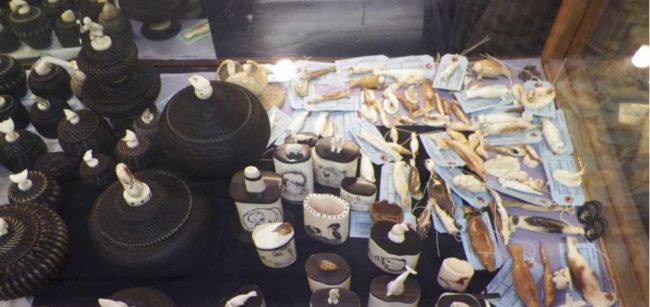
On March 10, 2021, U.S. District Judge Sharon Gleason of the District of Alaska sentenced Lee Screnock, 60, for misrepresenting hundreds of his own carvings as being made by an Alaska Native artist. This action is a felony violation of the Indian Arts and Crafts Act of 1990 (IACA), which prohibits false marketing of arts and crafts products as Alaska Native, American Indian, or as the product of a particular Indian tribe within the United States.
Screnock was first charged with a felony violation of the IACA and a misdemeanor violation of the Marine Mammal Protection Act in 2018. These charges stem from Screnock’s time as the owner of the Arctic Treasures gift shop in downtown Anchorage. Screnock was sentenced to pay $2,500 in restitution to the Indian Arts and Crafts Board (IACB), perform 100 hours of community service, forfeit seized retail products that were valued at $125,000 and serve five years of probation, during which time he may not work with any wildlife products.
Federal investigation into Screnock began in 2015 when he sold a polar bear skull to an undercover U.S. Fish and Wildlife Service (Service) special agent, in violation of the Marine Mammal Protection Act. Undercover agents visited Screnock’s store again in 2017, and asked about carvings made by “Savuk,” Screnock’s nickname. Screnock told the agents Savuk is an Alaska Native artist from Point Hope, but the carvings were actually made by Screnock, which violates the IACA.
The charges, convictions and sentencings are a result of a multi-year, multi-agency investigation led by special agents from the Service’s Office of Law Enforcement (OLE) and with the assistance from federal wildlife officers of the Service’s National Wildlife Refuge System, and officers and officials from the IACB, the Alaska District U.S. Attorney’s Office, the Alaska State Troopers’ Wildlife Investigations Unit, the National Park Service’s Investigative Services Branch and the Chief Ranger of Lake Clark National Park and Preserve.
###[content id=”79272″]

